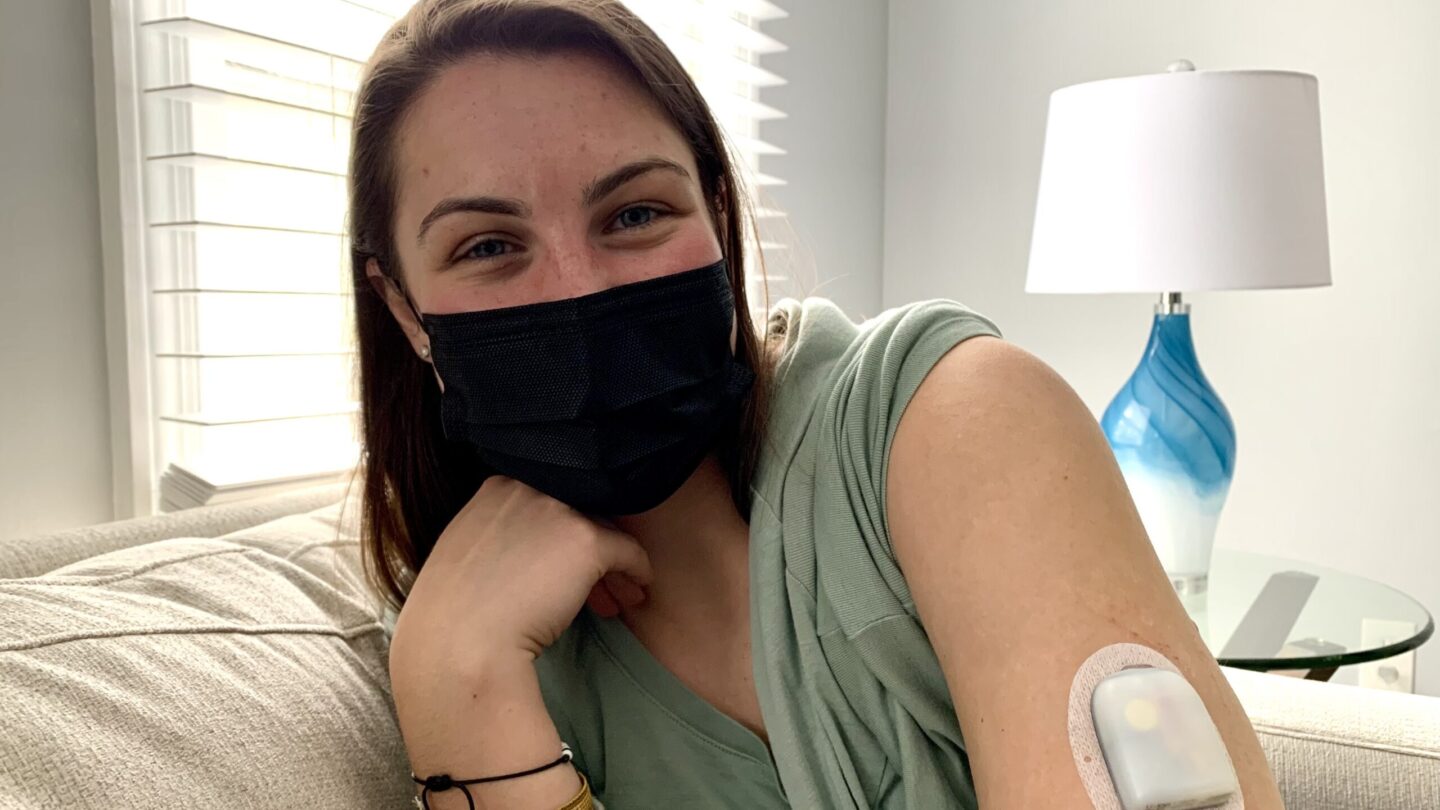The manufacturer’s price for insulin medication has tripled over the last decade. That means higher out-of-pocket costs for an estimated 7 million diabetics who need the medication. Now, a bipartisan effort to limit the monthly cost of insulin is working its way through Congress. We spoke with some Georgians who can’t live without the life-saving drug.
“I have my insulin pump, which I can show you,” says Alina Bills.
She rolls up her sleeve to reveal a small white, plastic box sticking to her arm like an oversized nicotine patch. It’s actually a computerized device with a needle inside.
“The insulin pump manages giving me insulin throughout the day.”
Bills is 26 years old. When she was four, she was diagnosed with Type 1 diabetes. That means her body doesn’t make the critical hormone insulin that helps turn food into energy.
Without insulin, diabetics could face life-threatening complications or death.
Bills’ insulin pump holds a vial of insulin that lasts three or four days, she says.
Even with insurance, her usual supply of insulin costs her $200 a month. Adding in all of the other diabetes equipment she needs along with the insulin, that bill totals at least $8,000 a year out of pocket.
Bills recalls one month when she needed more insulin than insurance would cover.
“I did go to the pharmacy, and I was just like, I think I need one vial of insulin to kind of hold me over, right? After they factored in my insurance and everything,” she says, “they were like, Oh, this one vial is going to cost you $371. And I was just like, OK, thanks. And I walked away.”
Instead, Bills borrowed a vial from a diabetic friend. She says in a pinch many diabetics turn to social media for help.
“To reach out to this like greater diabetes network to be like, Hey, I can’t afford my insulin or does anybody in the area have an extra vial, essentially.”
Number of Georgians with diabetes is on the rise
Diabetics’ out-of-pocket costs depend on a host of factors, including the type of insulin they need and their insurance coverage. But most pay hundreds — even more than $1,000 a month.
Multiple studies show some diabetics ration their insulin. Or skip doses altogether.
This, while the overall number of Georgians diagnosed with diabetes is on the rise, especially among Black and Hispanic Georgians, who are more likely than whites to be diabetic, according to the CDC.
U.S. Sen. Raphael Warnock of Georgia wants to cap out-of-pocket insulin costs at $35 a month. He says his office gets a lot of calls from people struggling to pay for their insulin.
“This is a drug that’s been around for a century and yet we are seeing this kind of price gouging that is going on,” Warnock says. “And when you need insulin, you need insulin. You can’t afford to not take it. And so this is an effort to take the pressure off of folks who need the drug.”
A health insurance group said in a statement that capping insulin costs at $35 without also addressing the insulin list price would let drugmakers off the hook, potentially allowing them to continue to raise prices.
And insurance lobbyists say premiums for everyone could go up as companies try to make up the cost.
Still, a recent Kaiser Family Foundation poll finds more than half of Americans support limits to out-of-pocket insulin expenses.
Among those in favor is Shannon Bjorneby. She’s a teacher in a rural community near Savannah. Last year, doctors diagnosed her oldest son with Type 1 diabetes. Her husband has Type 2 diabetes.
Over video, she says the family struggles to afford insulin and make ends meet.
“I would love to be able to just take that $100 and take my kids to the movies or something like that. But instead, I’m always thinking, OK, I need this much for this and this much for that,” she says.
Bjorneby says all insulin-dependent diabetics need financial relief. But, she wants any insulin bill passed by Congress to also include relief for uninsured diabetics, who pay the most for their insulin.
One version has passed the U.S. House but it’s not clear when the Senate will take up their version of an insulin bill.








